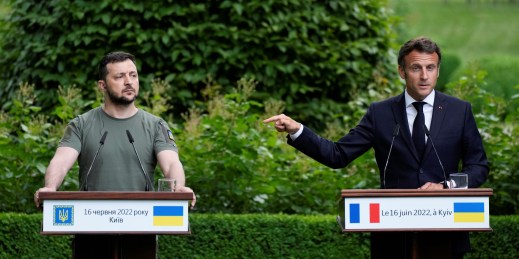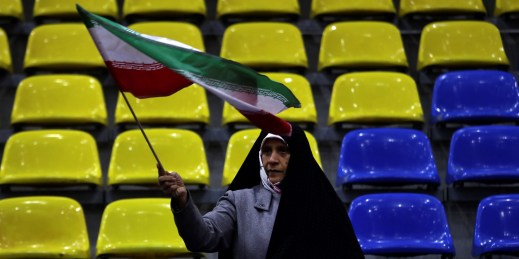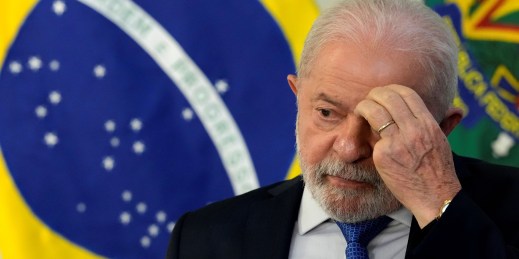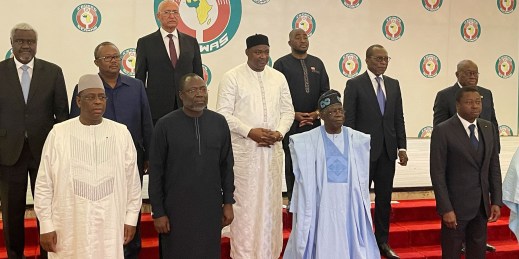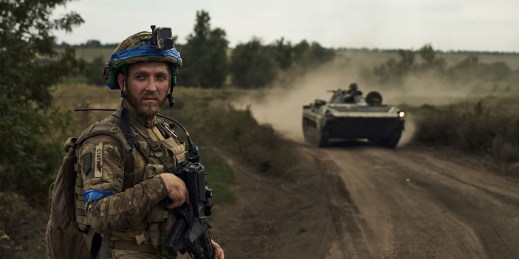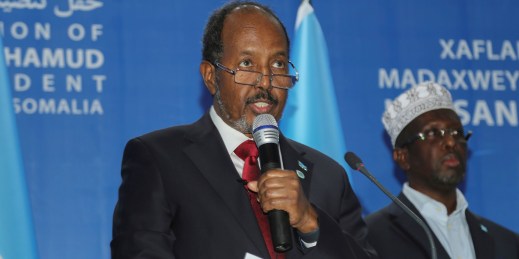Latest Archive
Free Newsletter
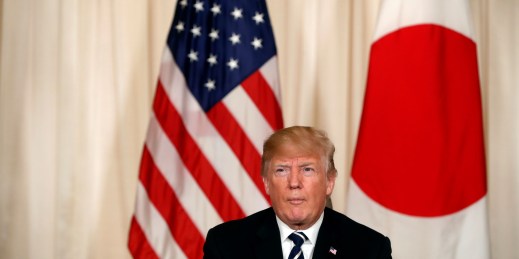
It’s common knowledge that the possibility of a second term for former U.S. President Donald Trump is sending shivers up the spines of Washington’s NATO allies. But the prospect of a second Trump presidency is also heightening anxieties among U.S. allies in Asia, which have also relied on U.S. security assurances for decades.
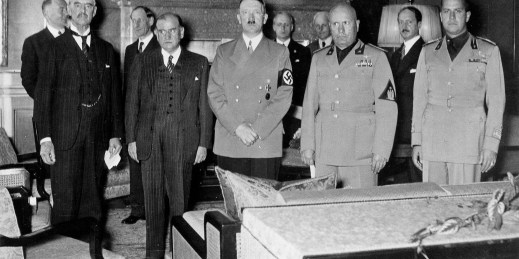
A recent spate of commentary has drawn the analogy between today’s regional conflicts and those of the 1930s that led to World War II, often as a cautionary tale for how to deal with contemporary international security dynamics. These analogies, however, misread the past, with potentially dangerous implications for the present.
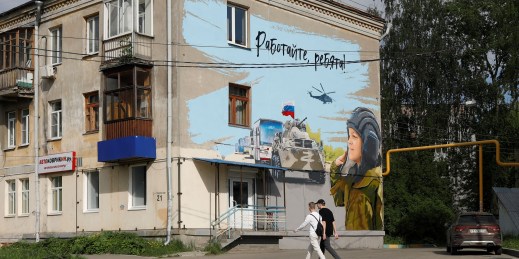
Censorship of local Russian media, combined with diminished access for foreign reporters, has narrowed our understanding of the war in Ukraine’s impact on Russian communities outside big cities. Yet even with these limits, there are significant signals that undermine the image of invincibility the Putin regime works so hard to project.
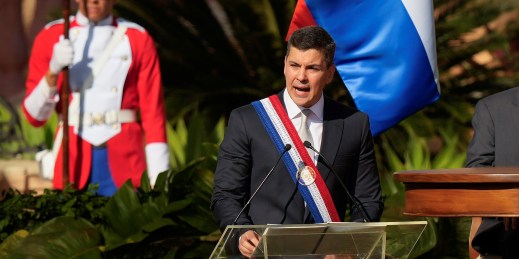
Paraguayan President Santiago Pena is attempting to market the country as a burgeoning destination for foreign investment. But weak rule of law and illicit enterprises continue to permeate Paraguay’s political institutions, threatening to set back Pena’s agenda, the country’s progress and wider regional security.
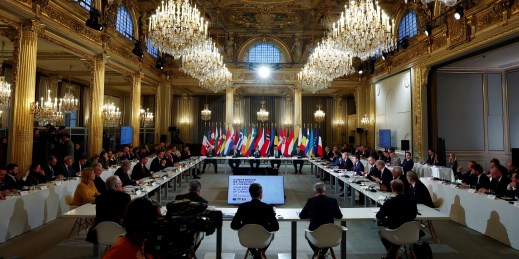
Recent developments in the U.S. have reinvigorated the debate over Europe’s ability to defend itself. Now, after having relied for decades on U.S. support while collectively free-riding on U.S. capabilities, Europeans will have to shoulder a much more significant burden in European security themselves in the foreseeable future.
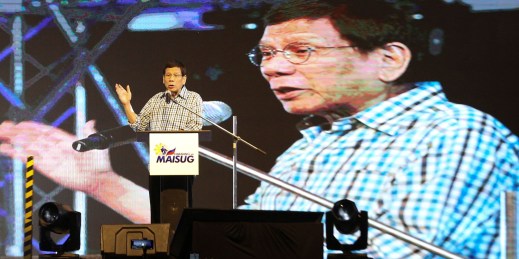
The feud between the Marcos and Duterte families in the Philippines is also a reflection of the new Cold War brewing in the region. With Philippine President Ferdinand Marcos openly welcoming expanded security cooperation with Manila’s Western allies, the Dutertes have positioned themselves as China’s best hope in the Philippines.
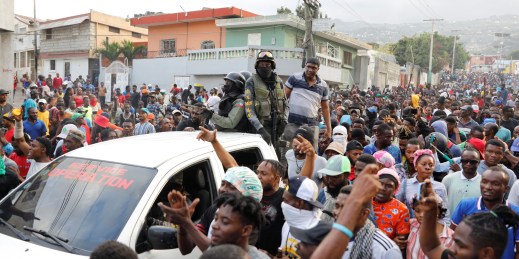
With no elected leadership currently in place, Haiti’s governance crisis would be helped by a new election to put in place a legitimate government that can begin solving the country’s challenges. It’s a simple recommendation that quickly becomes complicated by the country’s current situation as well as its recent and distant past.
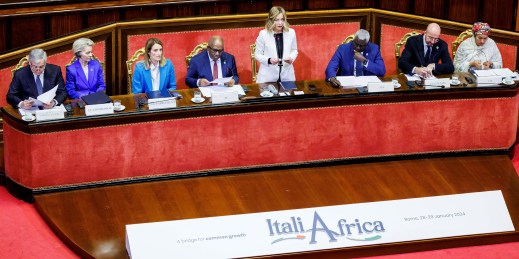
Italian Prime Minister Giorgia Meloni used the annual Italy-Africa gathering—upgraded to a summit this year—to strategically frame her government’s new approach to Africa. However, the inherent contradictions of the event were not entirely concealed, revealing challenges that will necessitate nuanced approaches to resolve.
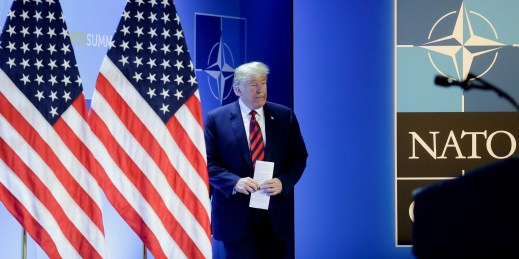
How durable are alliances? And how believable are alliance commitments? Stated differently, if the U.S. under Donald Trump or another president ends up being an unreliable ally when push comes to shove, would it be consistent with what we should have expected all along? It turns out these are surprisingly difficult questions to answer.
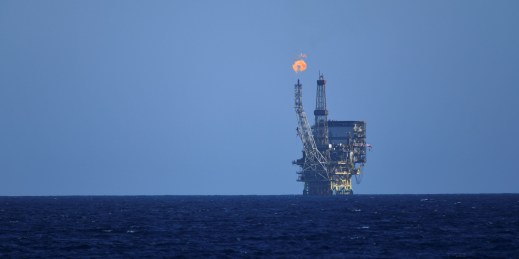
European governments are seeking to deepen their oil and gas partnerships with Libya, largely to diversify away from Russian supplies. Yet by neglecting internal challenges such as political discord, corruption and militias, they may jeopardize their own objectives as well as Libya’s path to stability and economic recovery.
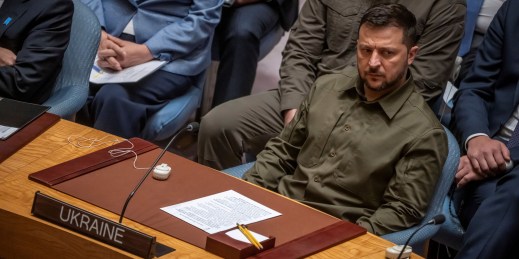
When the U.N. convenes Friday to mark the second anniversary of Russia’s invasion of Ukraine, the events may feel a little low-key. One reason is that many U.N. members want to focus on other issues. The second is that the West’s failure to support a cease-fire in the Israel-Hamas war has alienated a lot of non-Western representatives.

